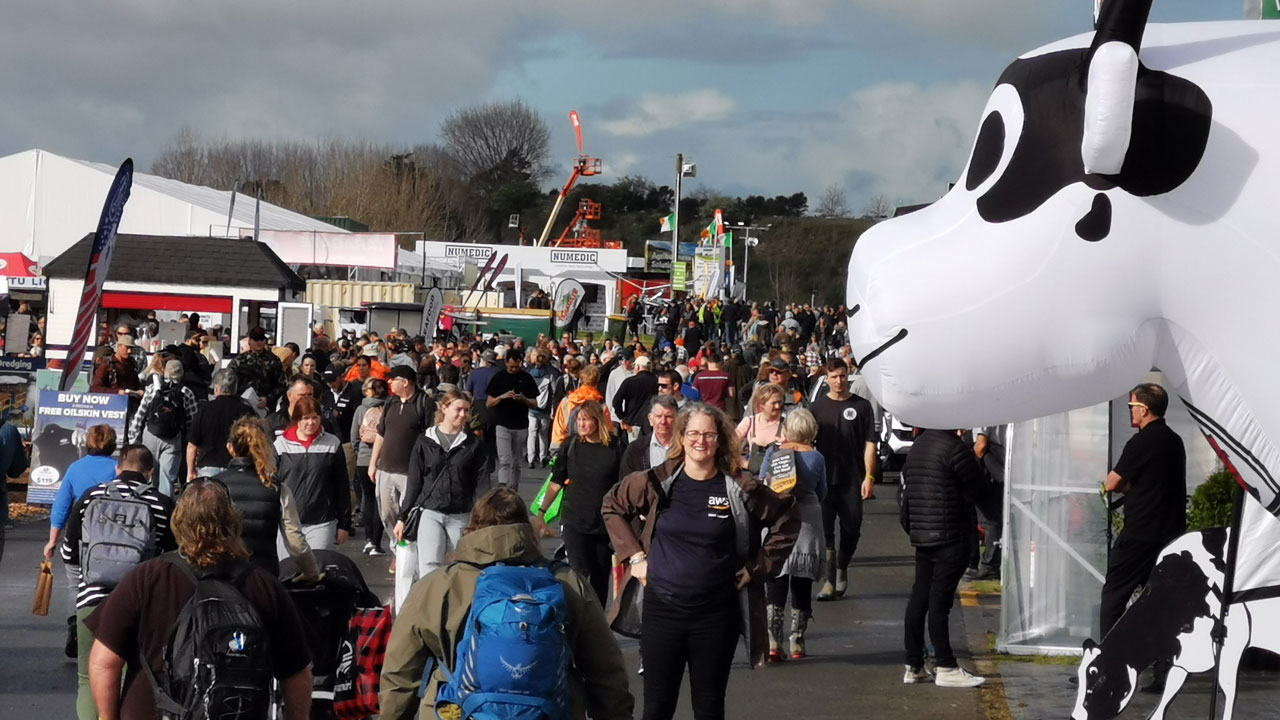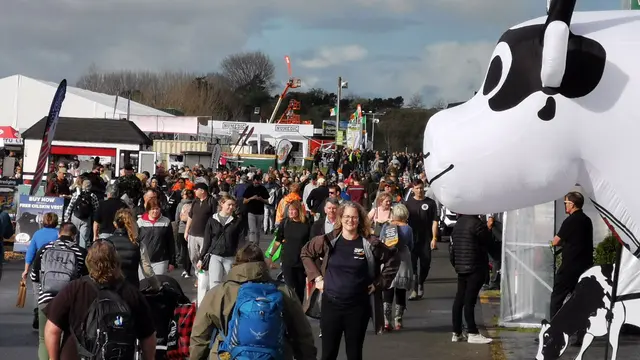03:06

New Zealand has once again hosted the southern Hemisphere's largest agricultural show after the event was cancelled in 2020 due to COVID-19.
The Fieldays is described as "the ultimate launch platform for cutting-edge technology and innovation," and more than 1,000 exhibitors have taken the opportunity to showcase their products to an expected audience of more than 100,000 visitors over four days.
Labor shortages have become a key issue for many farming enterprises following theclosure of New Zealand's borders during the pandemic, so robots are being heavily promoted to undertake repetitive tasks like milking cows. The latest DeLaval robotic milking systems use 3D cameras for greater accuracy and efficiency, but the company says it does not mean the end of labor.
"What it does is change the role of labor on the farm" says Ken Ward, Asia Pacific Vice President of Market Development. "You can turn the value that of the labor unit into something a bit more tangible - more about management than milking the cows."
Fenceless farming is another radical alternative for dairy farmers with the development of a solar-powered collar attached to the cow's neck. Developed by the New Zealand company, Halter, the remote-controlled collar uses sounds and vibrations that enable farmers to guide cattle from paddock to paddock without the need for any barriers.
The technology also takes 3,000 readings per minute from every animal to establish baseline behavior and detect abnormal health events. "By measuring activity 24/7, that data allows us to have healthier cows or better performing cows" says Halter business development manager Steve Crowhurst.
Agriculture accounts for around 50 percent of New Zealand's greenhouse gas emissions, so there is also a strong emphasis on environmental protection, especially when consumers are concerned about climate change and want food from more sustainable sources.
Launched at the Fieldays, the ASB Bank has created a NZ$100 million fund for low interest 'green loans' to help farmers who want to boost their climate resilience and make a positive difference to the environment.
The funding is available for conservation and biodiversity restoration that promotes healthy soil, ecosystems, waterways and animal welfare, and ASB Executive General Manager Tim Deane says the ultimate goal is for New Zealand "to continue to lead the world in efficient and profitable farming – and command a premium for Kiwi products."
 简体中文
简体中文





